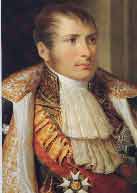|
According to a January, 1947 article in Chess Magazine entitled
Automaton Chess by C.
Gilmore:
Prince Eugene de Beauharnais bought the machine for 30,000 francs and
Maelzel gave part of the money to Beethoven. In 1817 Beauharnois sold it back
again to Maelzel for the same sum. No cash was handed over but Maelzel was to
pay from any profits he might make. About1825 the heirs of Prince Beauharnais
sued Maelzel for the balance so he went to the U.S.
One of the great American chess composers was Eugene Beauharnais
Cook.
The name similarity can't be a coincidence, so we can probably assume his
mother named him after Prince Eugene de Beauharnais. Cook's mother was Martha
Elizabeth Duncan Walker Cook. She was born in 1807 in the Bellefonte borough of
Pennsylvania. Her father was Jonathan H. Walker*, a
well-known President Judge in Centre County. He had fought in the
Revolutionary War, studied law at Carlisle, and became the first Judge of
of the United States Court for the Western District
of Pennsylvania. Her brother was Robert J. Walker,
United States Senator from Mississippi 1830,
Secretary of Treasury of United States 1845 under Polk, Governor of the
Kansas Territory.
From an article on page 3 of the Democratic Watchman in the May 17 1867
edition:
COMPLIMENT TO BELLEFONTE
"The following complementary notice of Bellefonte society, and distinguished
individuals who have been citizens at our common weekend from a Pittsburg paper.
It says, "Bellefonte has been noted for producing great men, and indeed the
society is that the most cultivated and refined, kind.
In 1815, Martha Walker married New Jersey resident William Cook who would
later become Major General Cook.
According to Appletons Encyclopedia:
Mrs. Cook was for nearly two years, 1863-'4, editor of the "Continental
Monthly," published in New York, and contributed many poems, sketches, and tales
to that periodical. She was a good linguist, and translated several works from
the German and French. Among these were Liszt's " Life of Chopin," translated
from the French (Philadelphia, 1863); "The Undivine Comedy, and Other Poems," by
Count Sigismund Krasinski, translated from the Polish through the German and
French (1875); and "Life of Joan of Arc," from the German of Guido Goerres,
published as a serial in the "Freeman's Journal."
E. B. Cook's father, William Cook graduated with honors at West Point in 1822
specializing in Engineering. Later, he worked as an engineer for every
worthwhile railroad in his day and served as consultant on others:
The Camden & Amboy, the Philadelphia & Trenton, the Freehold & Jamesburg
Agricultural, the Burlington & Mount Holly, the West Jersey, the Salem, the Cape
May & Millville, the Long Branch & Seashore, and the Pemberton & Hightstown, as
well as the Gibson and Grand Gulf Railroad in Mississippi.
The mystery lies in why would such "American" minded people name their child
after a European "Prince"?
Who was Eugene de Beauharnais?
 Born
in 1781, he was the son of the general Viscount Alexandre de Beauharnais and
Josephine Tascher de la Pagerie. His father, who served in both the American and
French Revolution was beheaded by Robespierre. His mother, Josephine, married
Napoleon Bonaparte (yes, it was THAT Josephine) After Napoleon coronated himself
emperor, Eugene was given the title of "Prince," with an annual stipend of
200,000 francs. When Napoleon turned the Republic of Italy into the Kingdom of
Italy, Eugene was made Viceroy. He also became one of Napoleon's most successful
generals. After the fall of Napoleon, Eugene retired to Munich, Bavaria, as the
"Duke of Leuchtenberg" and "Prince of Eichstdt" until his death in 1824. Born
in 1781, he was the son of the general Viscount Alexandre de Beauharnais and
Josephine Tascher de la Pagerie. His father, who served in both the American and
French Revolution was beheaded by Robespierre. His mother, Josephine, married
Napoleon Bonaparte (yes, it was THAT Josephine) After Napoleon coronated himself
emperor, Eugene was given the title of "Prince," with an annual stipend of
200,000 francs. When Napoleon turned the Republic of Italy into the Kingdom of
Italy, Eugene was made Viceroy. He also became one of Napoleon's most successful
generals. After the fall of Napoleon, Eugene retired to Munich, Bavaria, as the
"Duke of Leuchtenberg" and "Prince of Eichstdt" until his death in 1824.
If I were a hostess and my Journal a feast to which you were invited, the
meal today must be particularly unsatisfying - more a tidbit rather than a full
course.
But it gives some food for thought.
* Interesting to note: Judge
Walker was a slaveholder - see
Bedford County Slaveholders
|
Archives by Title
links
personal
Sarah's Serendipitous Chess Page
The Life and Chess of Paul Morphy
Sarah's Chess History Forum
chess - general
Chesslinks Worldwide
chess - history
Mark Week's History on the Web
Chess Journalists of America
Chess History Newsgroup
Hebrew Chess
Chess Tourn. & Match History
Super Tournaments of the Past
La grande storia degli scacchi
Bobby Fischer
Bil Wall's Chess Pages
|

